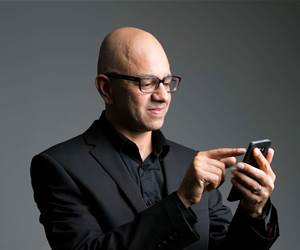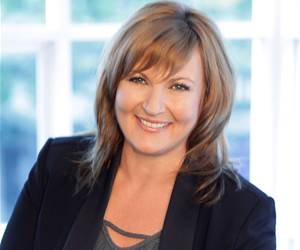Trust in the age of the data-driven supermarket
Roger Sniezek - Coles
.jpg&w=600)
As the custodian of Australia's biggest loyalty database, Coles digital chief Roger Sniezek says he will never risk breaching the trust of his customers.
Coles’ Flybuys program is the largest, and one of the oldest, customer loyalty schemes in Australia.
Started in 1994, Flybuys today counts 7.1 million active users, and the company is tracking a significant proportion of the 20 million transactions conducted through the store and online every week.
Cambridge-educated maths man Roger Sniezek has been in charge of this mammoth enterprise since 2011 when he was brought on board to overhaul the Flybuys brand and make it more appealing to customers.
In the middle of last year, Sniezek was also handed the rest of the supermarket chain’s IT operations, a recognition that the powers that be were happy with his work.
After a swathe of Coles IT jobs were sent offshore, the company got rid of the CIO title and handed the full spectrum of responsibility - from back-end systems to ten-year digital strategies - to newly minted ‘digital director’ Sniezek.
“I don’t sleep much,” the busy exec joked.
The age of the data-driven supermarket
In the cut-throat, price-driven Australian supermarket industry this treasure trove of loyalty data is critical to Coles building an edge on competitors like Woolworths, IGA and Aldi.
In what the press has dubbed the “price wars” between the dominant retailers, Sniezek says that simple uses of this data, such as filtering out irrelevant offers and drilling down to the specials most likely to appeal to customers, have already proven highly effective.
“If you’re a Flybuys member - and well over 60 percent of households in Australia are active in Flybuys - then we will send you a weekly email that lists the things on special in your local store based on the things you purchase most from us,” he said.
“Rather than getting our customers to go through hundreds and hundreds of specials, we can help them find the ones most relevant to them very quickly.
“This gets a great response from our customers.”
This database is also helping Coles get ahead in the growing online ordering space - which Sniezek nominates as one of the industry’s biggest disruptors.
Flybuys members ordering their week’s groceries online will have their regular purchases pushed to them based on past in-store habits.
“You can imagine if you buy 60 or 70 things in your weekly basket, it can take some time to go and search for all of them," Sniezek says.
“Our research shows this reduces the time taken to place your first order with Coles Online by about 75 percent."
The digital chief is aiming for the same intimacy with the customer that founder George Coles might have had when he first took over the family store in early 20th century Melbourne - albeit at a much, much greater scale.
“If you go back 100 years to George Coles, I’m sure at the end of unpacking a cart he might have said ‘I think you may have forgotten the milk this week’,” Sniezek said.
“Now, when you come to check out on Coles online, using a few computers in the background we will also suggest a few things that we think you may have forgotten.”
The digital chief insists it is about customer service, not upselling.
“You have to do things in the way that best works for the customer. If you don’t they will see through you very quickly.”
Staying true to the data deal
This implicit bargain with his customers obviously looms large in Sniezek’s business plans.
Brought into the company to reinvigorate trust and interest in the Flybuys brand, he understands that customers expect a good deal in exchange for their personal information.
“We enabled people to get $10 off their shop very easily. And for financial services customers, you’re earning not just one point per dollar but three points per dollar. If you take out car insurance you get four points per dollar, and so on.”
He also knows that the whole thing balances on a knife’s edge of customer trust.
“What customers are saying to us is that they are prepared to give us their data provided that we handle it very carefully. They give us that trust and in exchange they expect great value and relevant communications.”
According to the Flybuys privacy policy, the scheme’s database holds information about its users from their name and contact details, to the size of their household, the age of their family members and the type of payment card they use.
The late 2013 theft of customer credit card details from US retailer Target menaces as a worst-case scenario lesson for everyone in the global retail industry. It cost the company US$10 million in compensation but incurred much more expensive damage to confidence in its brand.
Sniezek remained cagey about the specifics of Coles’ infosec provisions, for security reasons, but insisted the company has “a very active program of work”.
He also repeated Coles’ promise to never sell customer data to a third party: "this is a blanket statement we live by”.
His trust-based data mantra centres on “only doing things that would be within the reasonable expectations of the customer”.
“If you look at the various privacy acts and all of the legislation around the world, that is how I would distill it all down,” he said.
However, this sharing does take place within the walls of the burgeoning Wesfarmers conglomerate, and between a long list of Flybuys partners.
The Flybuys privacy policy also confirms that data on customer habits may be used to inform Coles’ expanding financial services wing, which now offers credit cards and car insurance.
“Personal information” it explains, will be used to improve the program’s “understanding of your interests, suitability, and behaviour in relation to products, services, and offers, including risk assessments for financial products (including credit and insurance)”.
Willing to make the trade
None of this, however, seems to be creating any doubt in the minds of Coles customers, who continue to sign up to the loyalty scheme in droves, and who are actively making the most of what the Flybuys scheme has to offer them.
The 7.1 million member base is expected to grow even larger this year, according to Wesfarmers projections, and frequent engagement with Flybuys offers has driven the website into the top 20 ranking web locations in Australia.
Analysts predict arch-rival Woolworths doesn’t have deep enough pockets to cut its shelf prices any further in an effort to keep up with Coles and German discount outlet Aldi.
But Sniezek isn’t content to leave Coles’ competitive edge at the price tag - a temporary tactic at best. He and the growing digital team are looking to inject some start-up style innovation into grocery shopping, to give consumers a level of convenience he hopes they can’t resist.
“We are trying to create a culture where we are constantly looking at innovation, focussing on small changes with big impacts," he says.
"There can be a tendency in the IT world to think we have to do huge projects in order to deliver benefits. We’re really looking for a lot of small things that we can get done very, very quickly that will have big benefits for our customers and our team members.”
One of Coles’ big innovations has been taking its ‘click and collect’ system - designed for people who want to order online but can’t be at home to take a delivery - to the next level.
“We now have lockers in convenient areas at a number of our Coles express sites and people are able to turn up, punch in a code and collect their groceries - including chilled and frozen products that are kept in separate lockers," he said.
“I think this is pretty much the first example of this in the world."
Coles has also just released Hiku to a test group of 50 customers. Hiku is a hockey-puck shaped device that takes instructions by voice - like ‘I have just run out of carrots’ - and transmits this information back to the Coles’ app shopping list.
“We are doing this in a start-up manner, using lean thinking, getting things done very quickly and getting the product out there to see how it goes,” Sniezek says.


